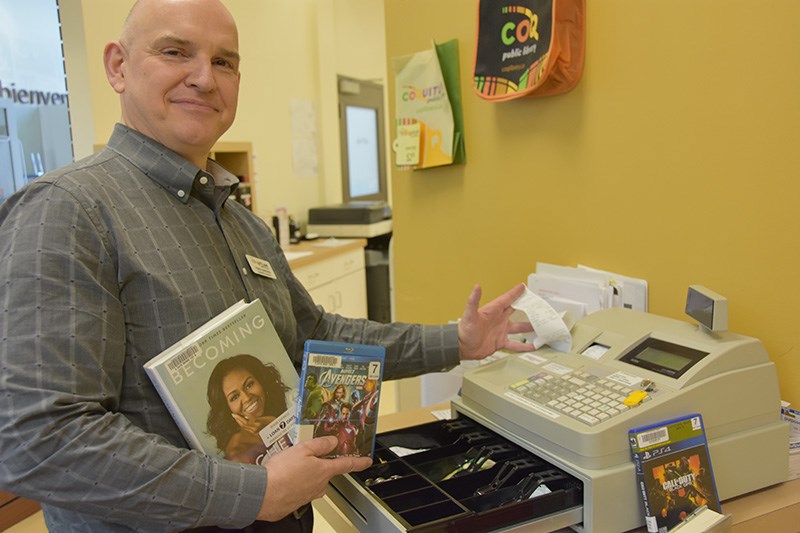The Coquitlam Public Library is willing to forgive and forget, but it’s a one-day offer only.
Library executive director Todd Gnissios got the idea from an email he received promoting a partial solution, conceived by the Seattle Public Library, to a dilemma facing libraries these days. It’s called Library Giving Day, and it will be held April 10 in libraries across the continent.
On that day, Coquitlam library scofflaws can come clean with a $25 donation and the library will forgive them their trespasses and also give them a tax receipt.
The library, like many others across North America, is concerned accumulating fines have created a barrier for previous users to return. And the library wants them back. While some have actually developed an amnesty policy and not only forgiven the fines, have dropped them all together. After all, fines were initiated way back when to ensure books and resources were kept in circulation.
“Fines were never supposed to be about raising revenue,” said Gnissios.
But getting rid of them would be difficult for Coquitlam since fines bring in between $50,000 and $70,000 annually.
“We just can’t afford to lose that revenue,” said Gnissios, who added there are no plans to raise fines because it could mean losing patrons. “We’re doing everything in our power to reduce [the number of fines].
“We’re very concerned about the barrier.”
Hence the decision to do the trial run on April 10.
“We want to see how they react to it. People don’t usually see us as a place to donate,” said Gnissios, who noted hospitals, like libraries, are government-funded but they have large fundraising arms.
“Libraries have never had a tradition of fundraising.”
The library will put the donations toward a fund to purchase some technology such as Ozobots and Spheros to help teach children and teens about computer coding and more.
Gnissios said the library considers a card holder who hasn’t visited the library within the past three years as inactive and many of them are in arrears. “Some we know aren’t using the library because they owe us money.”
Of those inactive users, 337 owe more than $100, according to library stats. They likely haven’t paid because they’ve lost the book or moved away, he said. There are 426 people who owe $50 to $100, and another 750 between $20 and $50 with more than 6,000 owing less than $20, an average of $4.14.
But since these are users that haven’t been around for three years, the library wants them back but the challenge is getting the word out to say they can come back by simply making the donation.
“I’d much rather have a fund-raising campaign than collecting fines. We want people to use our services. If [the fines are] a barrier we want to remove whatever barriers we can.”
Gnissios said the campaign will be a pre-cursor to one they plan to initiate in the fall to raise $100,000 toward its Library Link mobile unit.



